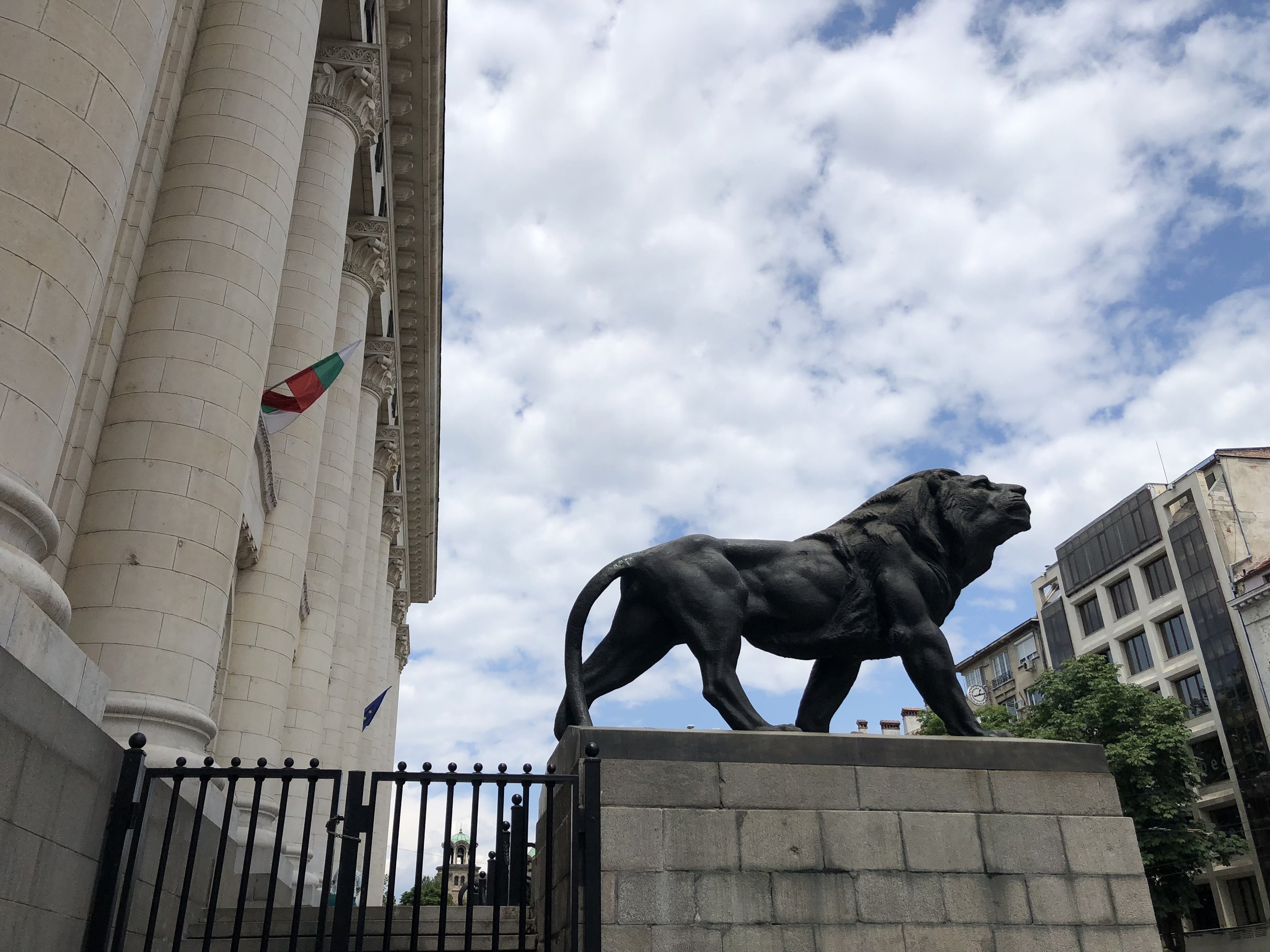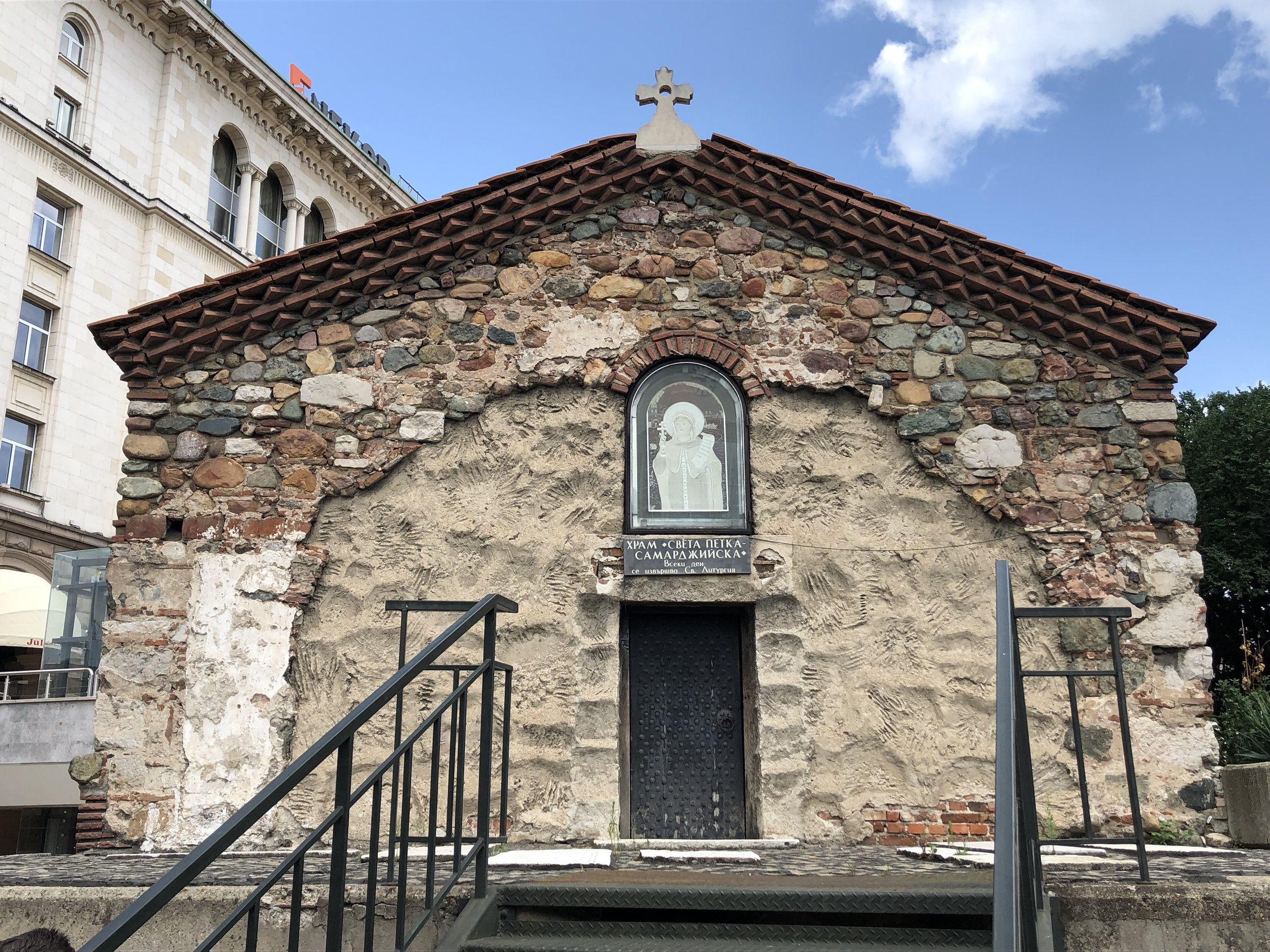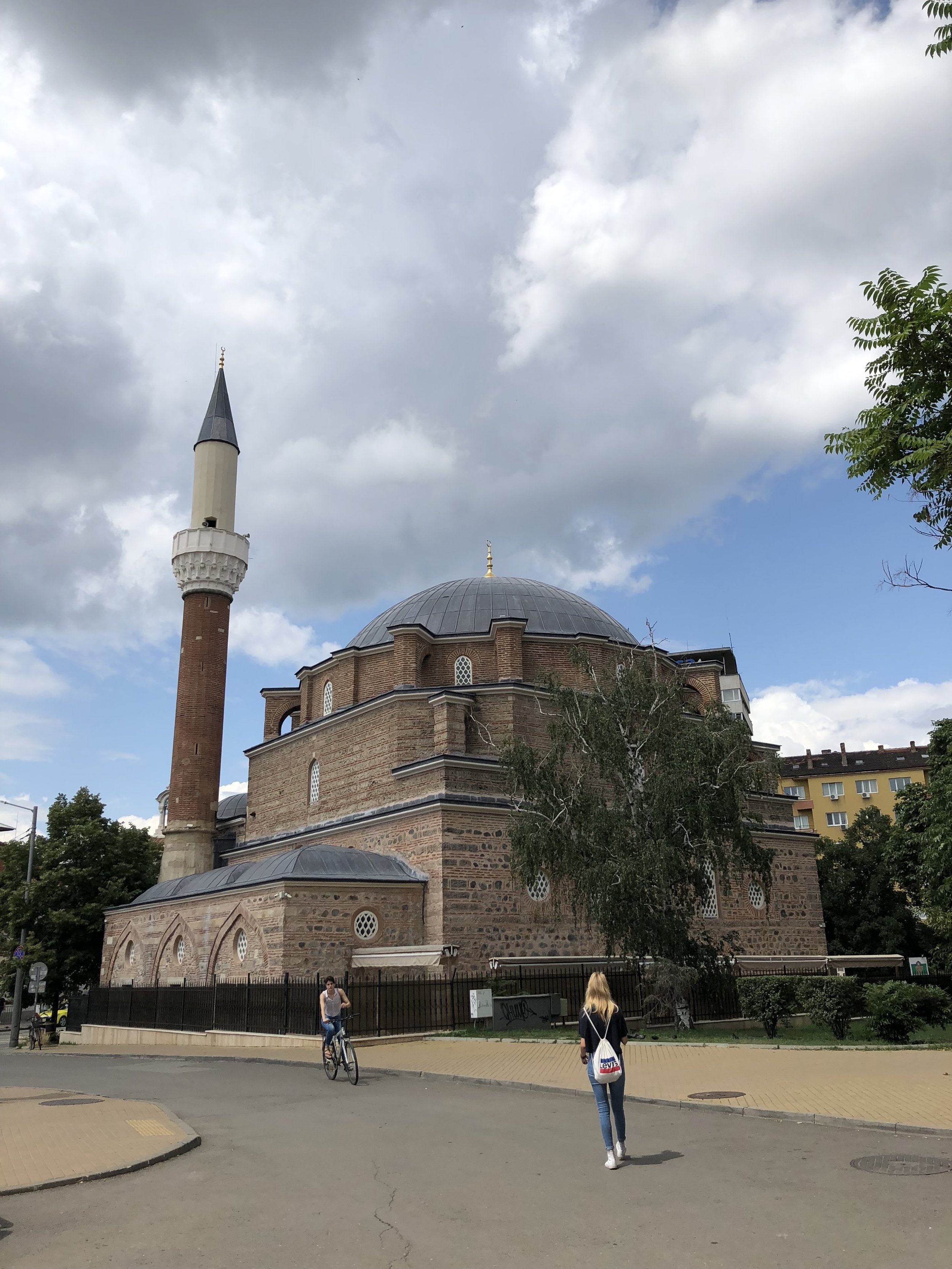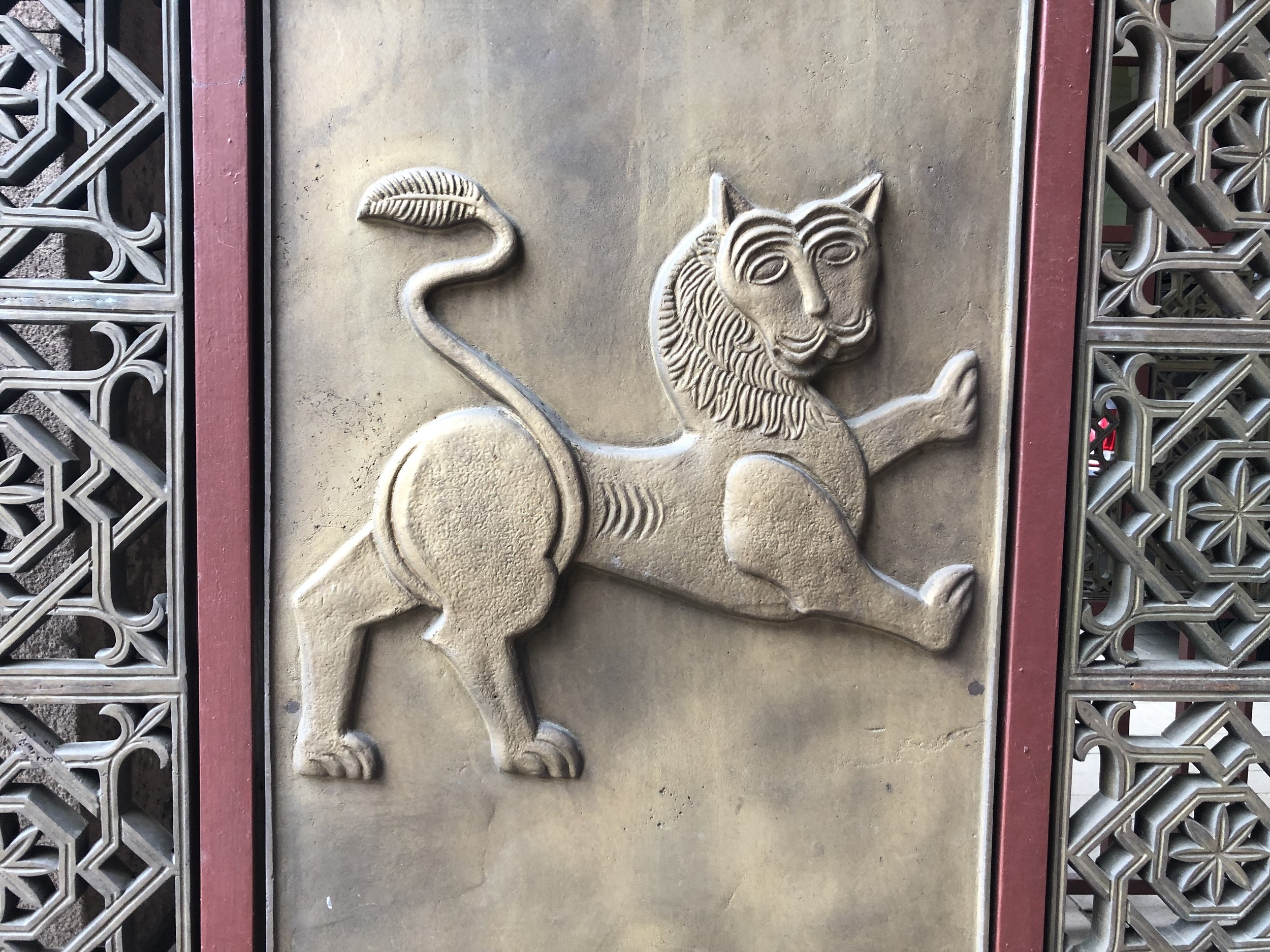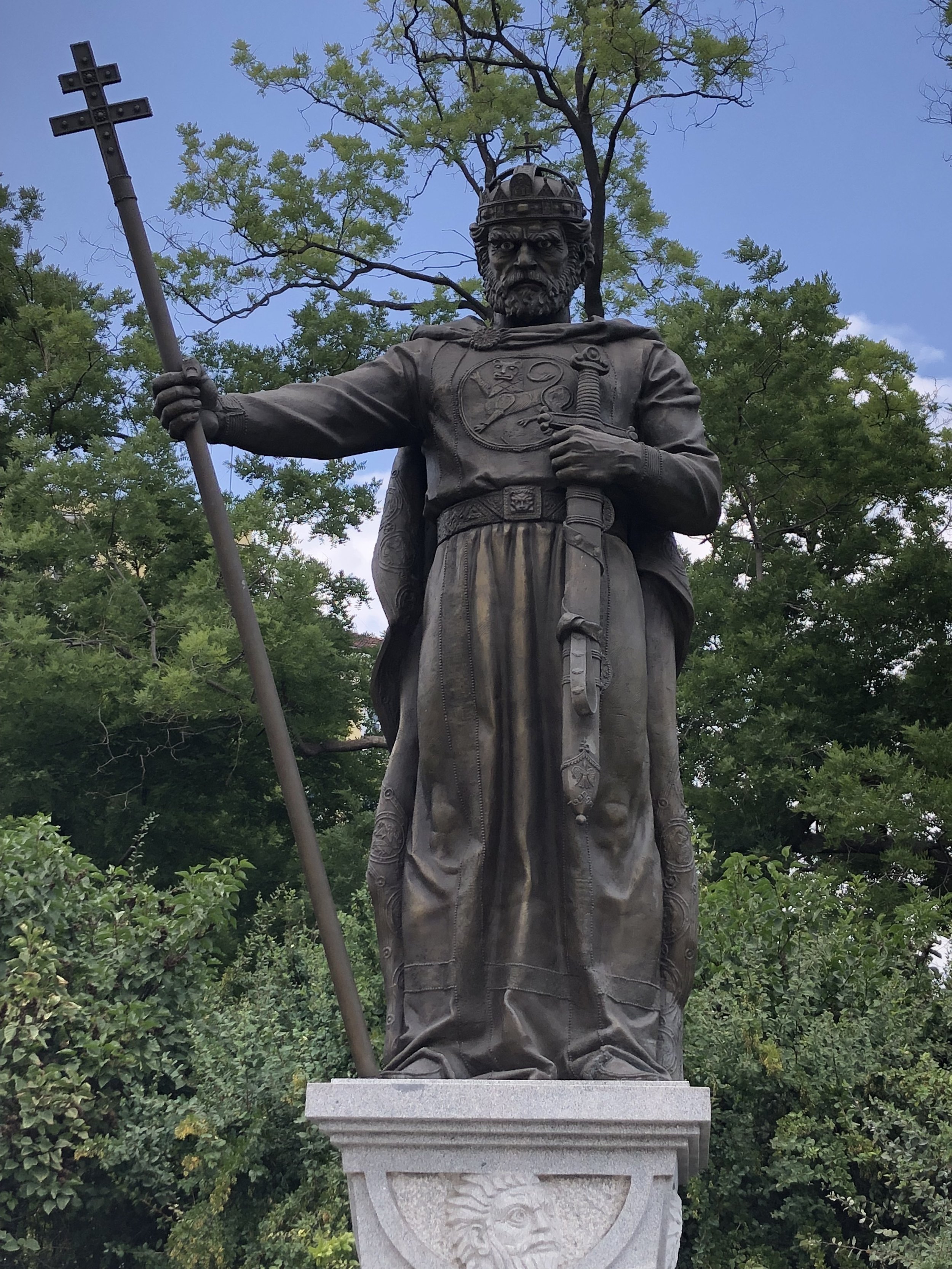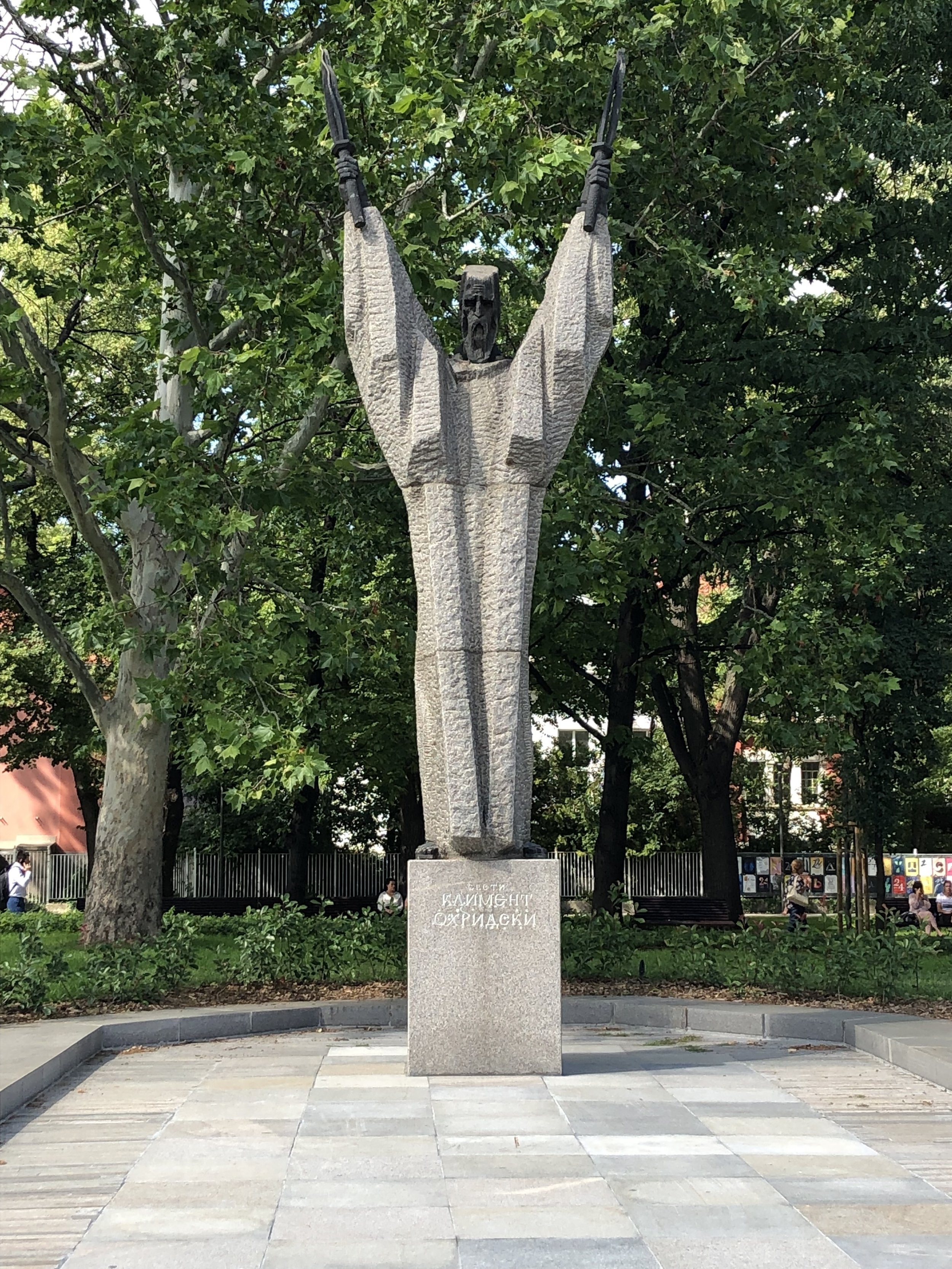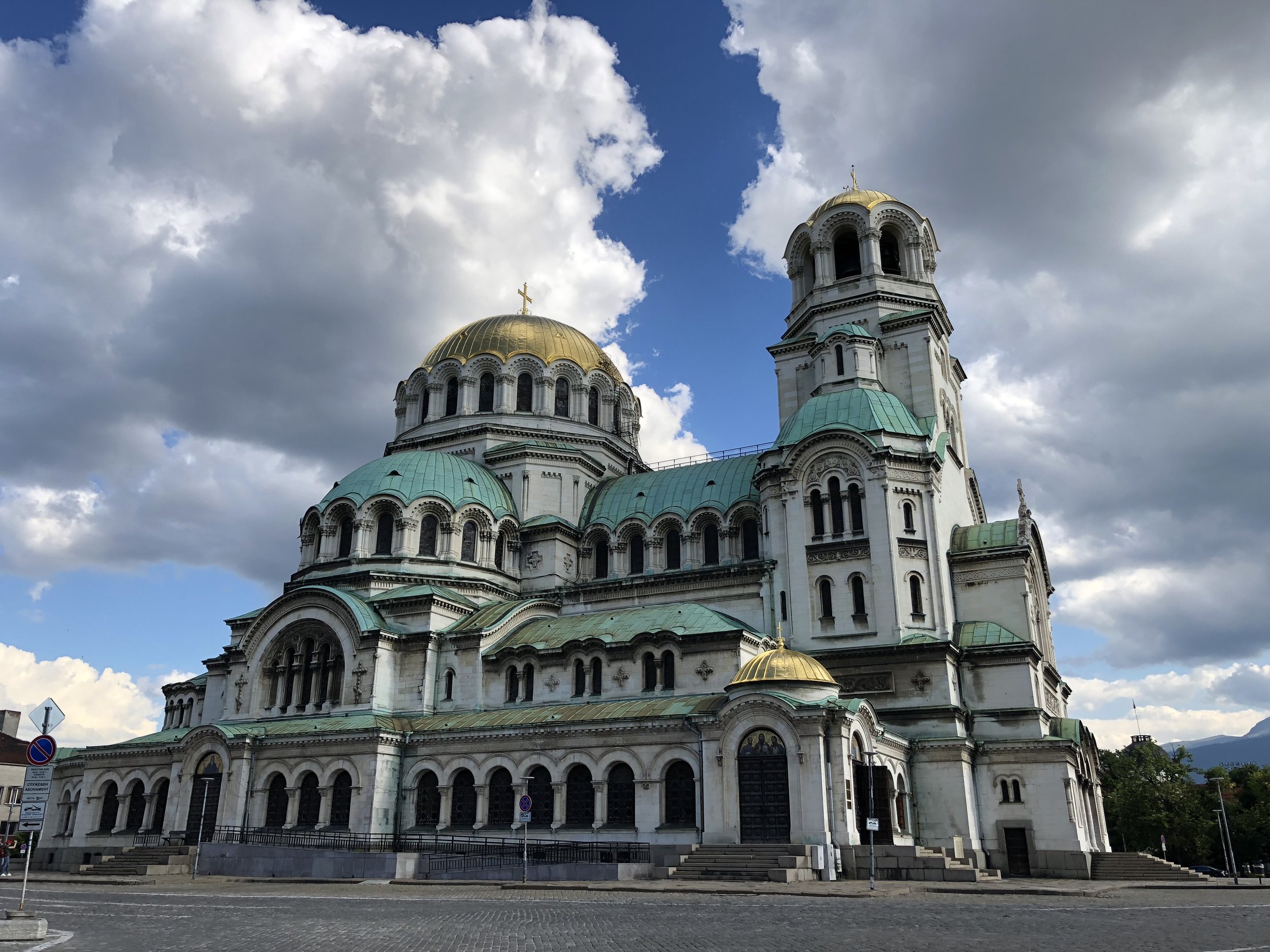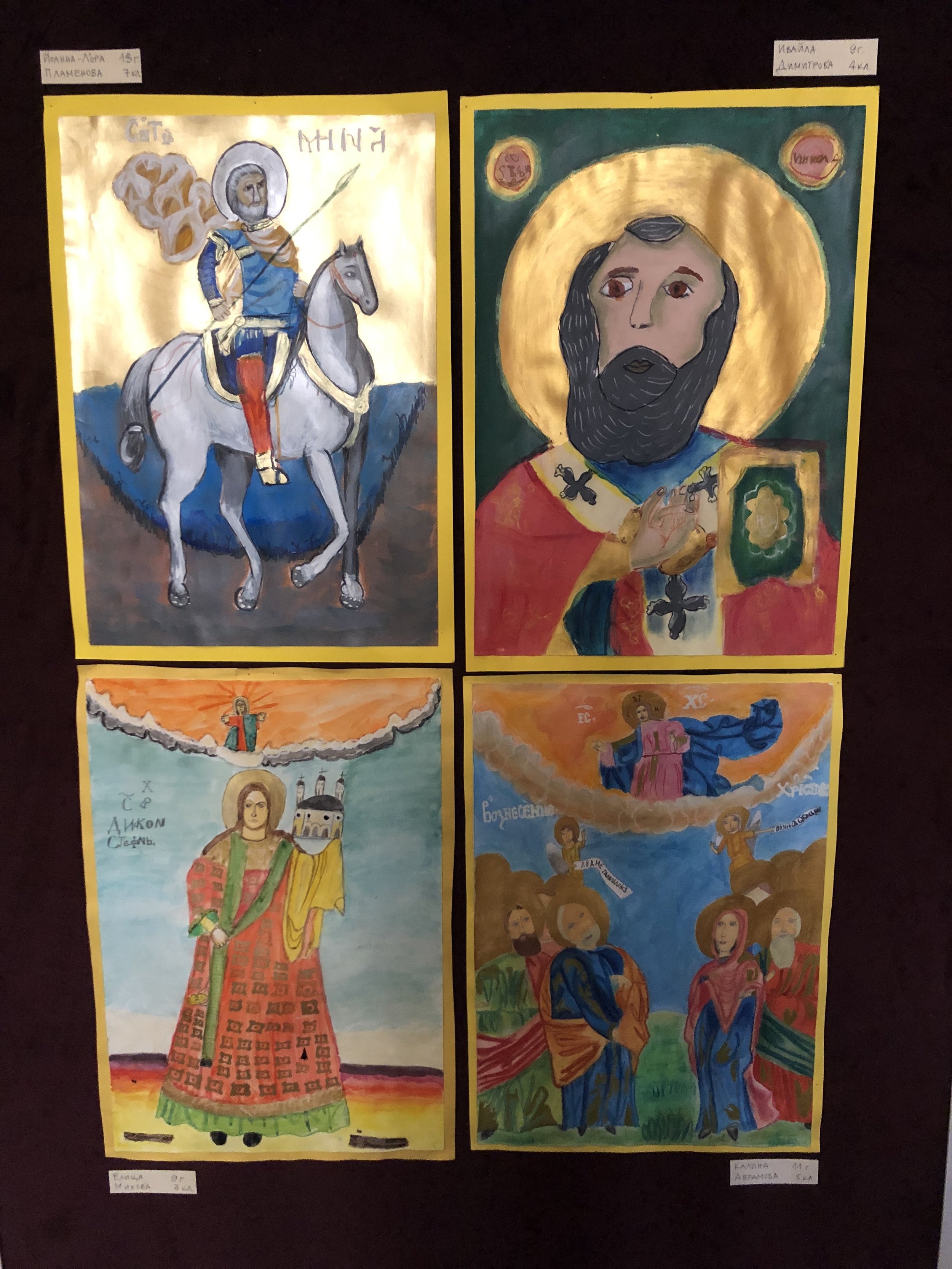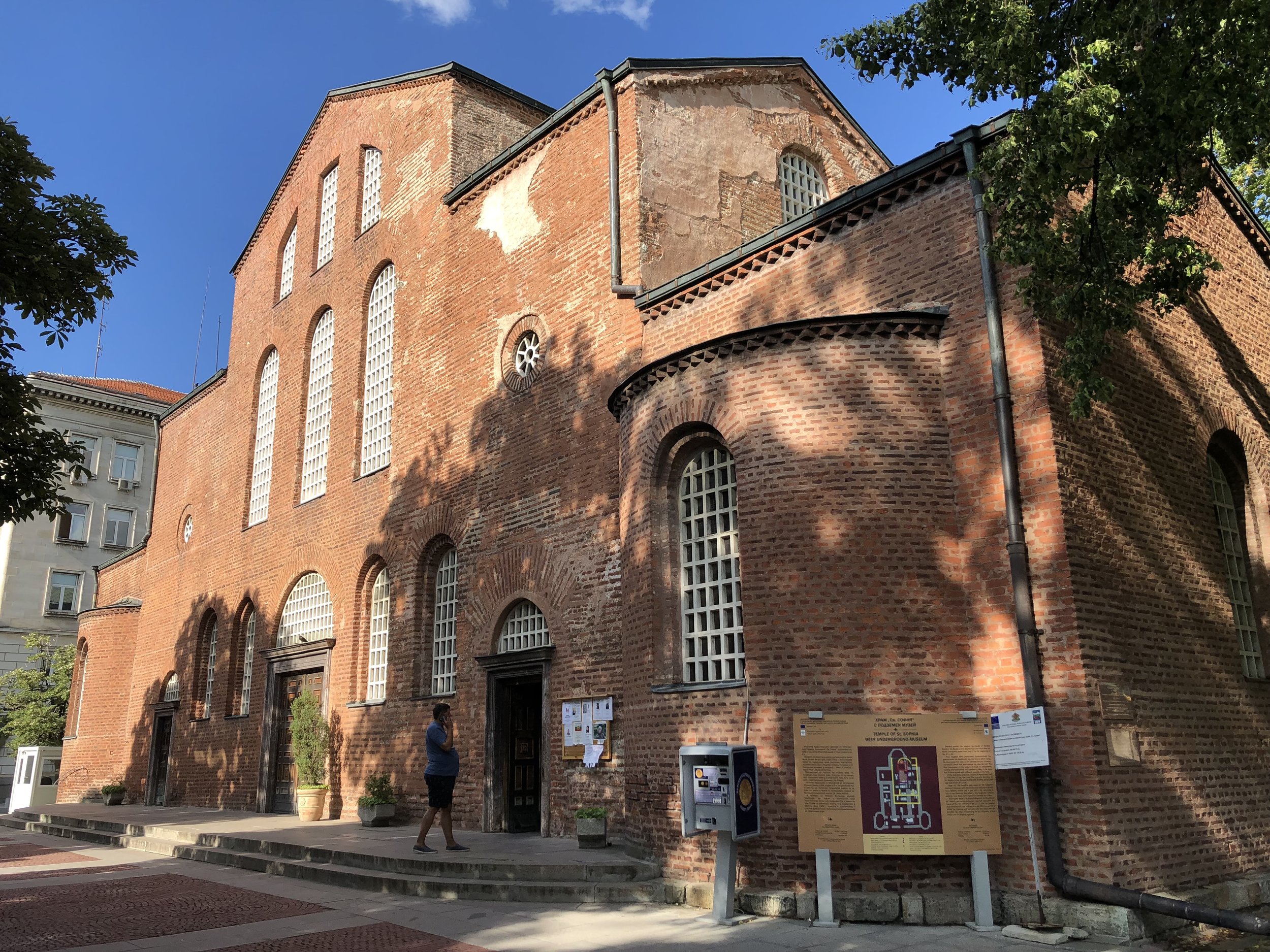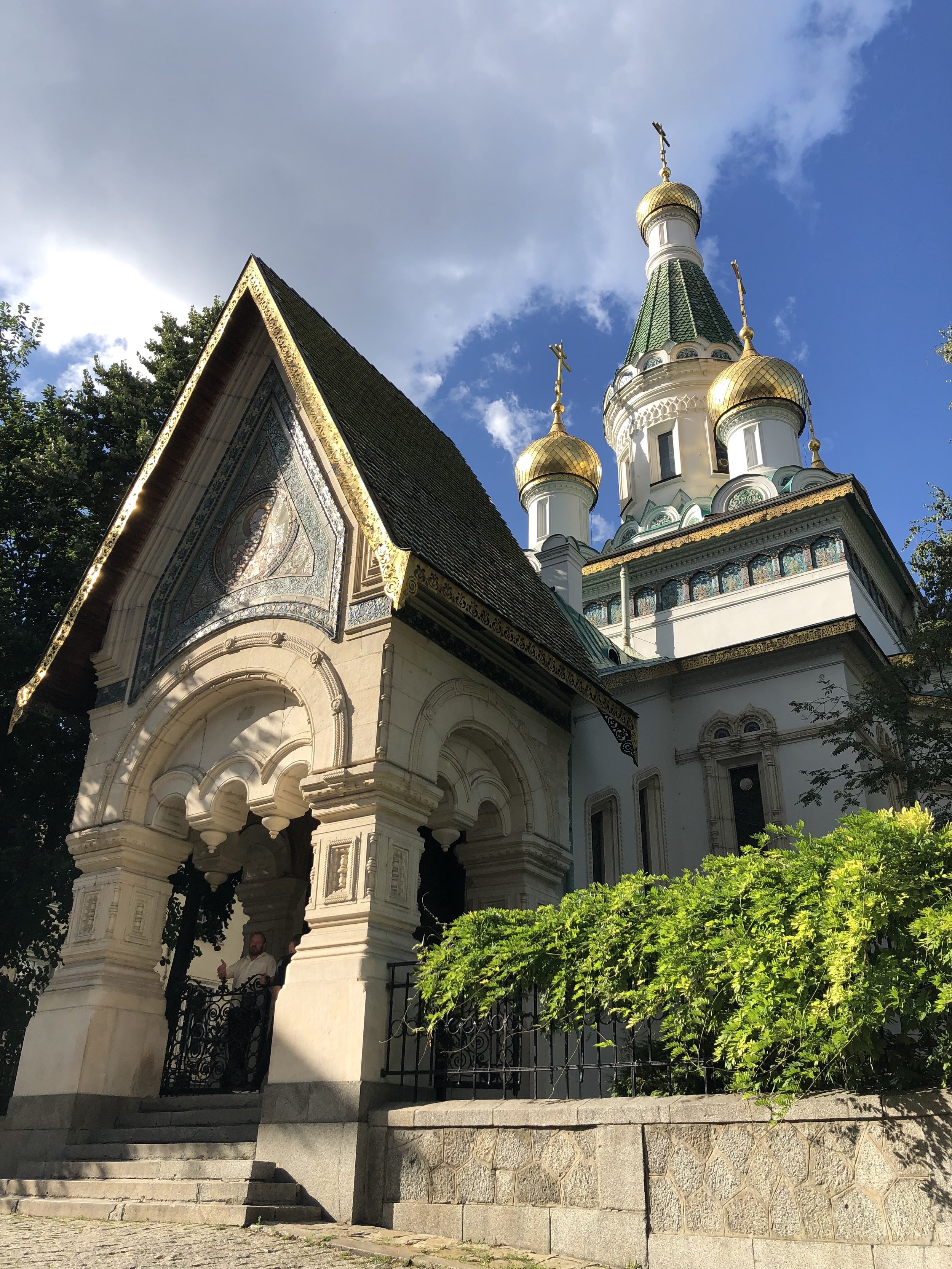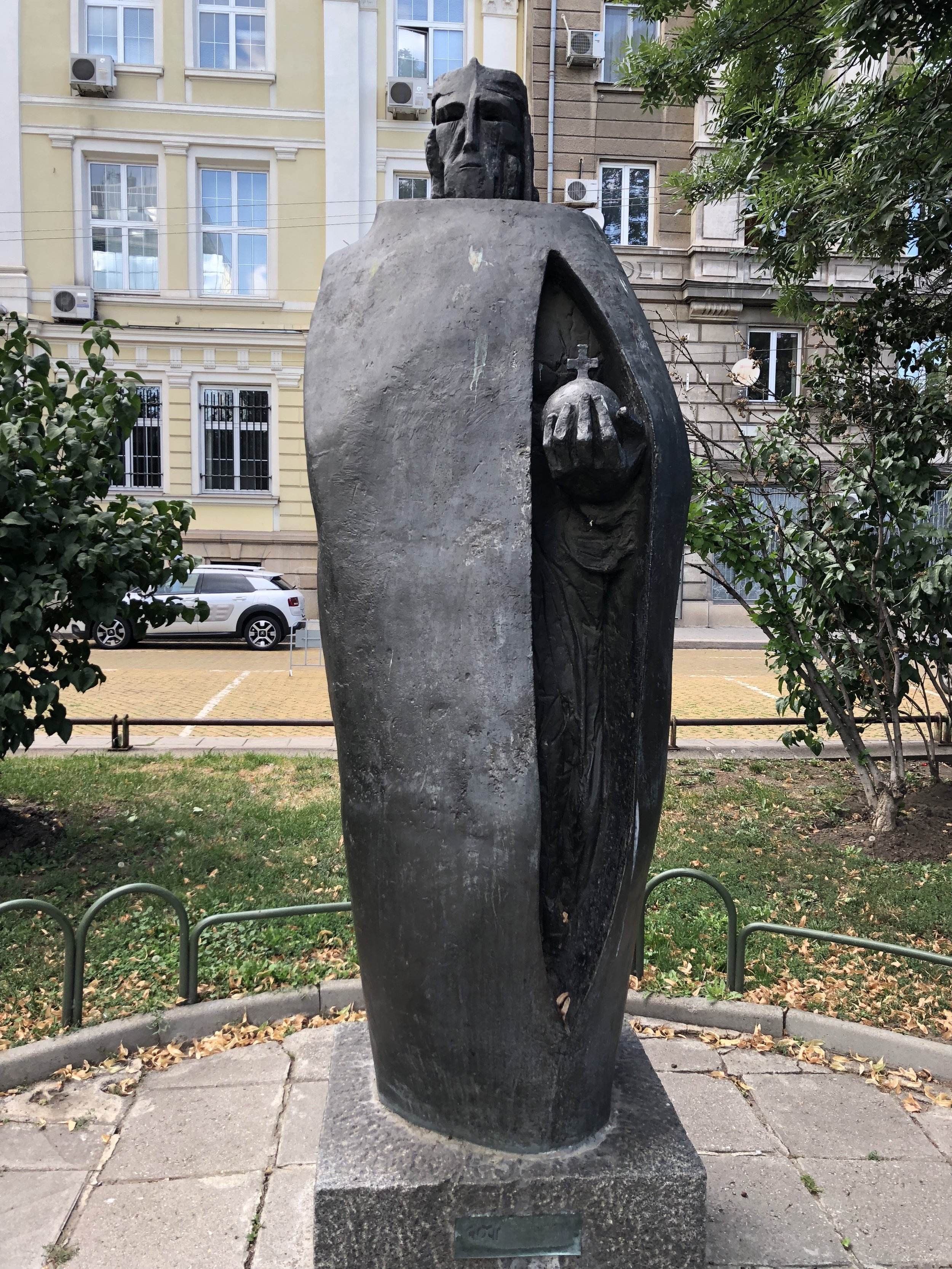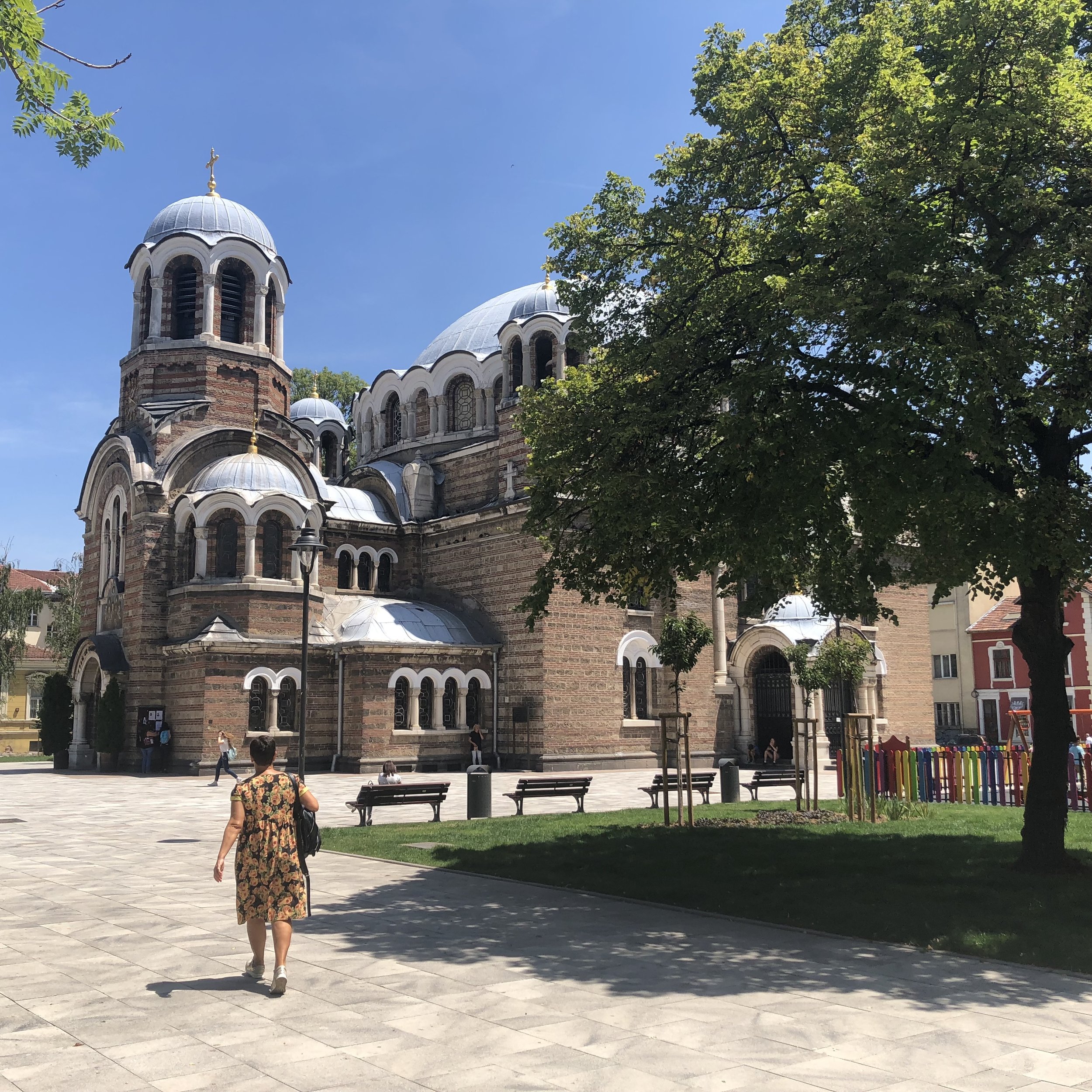Faith and Religion Search For Post-Communist Footing in Bulgaria
SOFIA, Bulgaria — Mitko Dimitrov starts his walking tour of this capital city with churches in the city center.
He points to the St. Nedelya Bulgarian Orthodox Church downtown, where 230 people were killed and 500 injured in 1925, the second biggest terrorist attack in the 20th century. He then points out a Roman Catholic Cathedral of Saint Joseph in the city center, where Pope John Paul II laid the corner stone. Nearby is the Muslim Banya Bashi Mosque from the 16th century, built on top of a crypt from an earlier epoch. And the largest Jewish synagogue in the Balkan peninsula, Sofia Synagogue, is located in the same square.
“Maybe I am young and naïve, but I hope other cities can build this kind of square of tolerance,” Dimitrov said.
Mitko Dimitrov giving a walking tour in the center of Sofia, Bulgaria, explaining the history of the Church of Saint George, which dates back to the 4th Century and is one of the oldest buildings in Sofia.
Bulgaria is a country at the geopolitical crossroads of Europe, Russia, Turkey, China and the United States. Its people invented the Cyrillic alphabet and made major contributions to Orthodox Christianity, both of which expanded in Russia. It’s also a country that was ruled by the Byzantine Empire before the Ottoman Empire and the Soviet Empire. All of those regimes created tension and tragedy for traditional religion.
Religious crossroads
“Here we don’t have the faith like a reliable source,” said Vyara Deyanova-Ivanova, a former journalist with Bulgaria TV who now has her own video storytelling channel called The Brave Stories that gets 200,000 monthly views. “People on holidays go to church and light the candle and they do this to receive a blessing. A lot of people in Bulgaria haven’t read the New Testament. A lot of people don’t know much about Christianity.”
Devanova-Ivanova said Bulgarians often pay 10 or 20 Lev ($11 to $17 in USD) for a priest to regularly pray for their families. They pay for baptism, funeral and other rituals as religion is partly a commercial and cultural transaction. People buy paintings and icons “like robots.”
“It is so rare to find a priest in the Orthodox world to whom you can speak with your heart, to ask for advice, to ask to visit your family and visit a sick child,” she said. “They work from a template. On one day, they schedule confessions. On another day, they make a liturgy.”
Deyanova-Ivanova and other journalists, academics and church leaders who spoke with Religion Unplugged during a July visit to Sofia explained various reasons for the religious disconnect. Some suggested the communist regime of 30 years (between 1944 to 1989) broke some people’s faith in religion or caused religion to go underground. Communists even built office buildings around ancient churches to hide them. The Church of St. George, for example, was once a Roman bathhouse that turned into a church in the fourth century when Romans became Christians and now surrounded by Soviet-style office buildings. Others suggested that scandals that expose church leaders wearing expensive watches or driving fancy cars are off-putting to people. Some suggested the closeness of the Bulgarian Orthodox Church to the Russian Orthodox Church raises fears of geopolitical alliance in the name of religion.
Several said that 11 of 13 bishops in the Bulgarian Orthodox Church were known to have ties with the former communist regime in Bulgaria, creating skepticism by some people toward the official state religion. Many believe the church has ties to the Russian KGB and the Kremlin. “So if you go to church and confess your sins, the secret service knows all about you,” one journalist for a Bulgarian state media joked.
Religious paradoxes
At a dinner one evening, at the Panorama restaurant on the top floor of the Park Hotel Moscow overlooking the diplomatic district of Sofia, Parvan Simeonov, an analyst at Gallup International Center for Public and Political Studies, said that 3.2 million of the 5.5 million adult Bulgarians believe in God but only 2.8 million identify deeply with the official Bulgarian Orthodox Christian faith by attending services regularly and indicating Christianity is part of their belief system.
Bulgaria is one of the poorest countries in the European Union but has a low ratio of public debt to GDP, average GDP growth and fairly low unemployment at 4.5 percent. Many are skeptical about corruption that holds the country back. Simeonov said that, strangely, the Bulgarian Orthodox Church, the army and the police enjoy high confidence and trust of the Bulgarian people while politicians and the government are held in lower esteem. “The church is trying to get in touch with more areas of public life,” he said.
From the outside, Bulgaria has a rich religious history and context. But “compared to the rest of the world, it turns out Bulgaria is below the average,” he said. “It’s more like Western Europe” rather than other deeply religious Orthodox Christian countries such as Greece, Romania and Serbia. Pew Research indicates Bulgaria ranks 18th most religious out of 34 European countries while Romania ranks first. Greece and Serbia are in the top 10.
“Romania, Greece and Serbia have education about religion in public schools. In Bulgaria, we have this problem — we are not including religion as a subject in public schools,” said Archimandrite Pahomii, rector of the Sofia Theological Seminary (a school for priests). “We are trying. The main reason to include religion is to gain knowledge of the topic and not to develop young people to be religious. We see the biggest part of society identifies as Bulgarian Orthodox. But they don’t know much about their faith.”
Archimandrite Pahomii, rector of the Sofia Theological Seminary (a school for priests) on the left with his colleague.
Representatives of the Bulgarian Orthodox Church said such school instruction would give students an option to study comparative religion, Orthodox Christianity or Islam. Meanwhile, they also see the need for the Bulgarian Orthodox Church to offer Sunday Schools, camps and other types of spiritual formation for young people and adults.
“In the west, they have a problem of belief without knowing,” said Associate Professor Kostadin Nushev, department chair at the Faculty of Theology at Sofia University. “In our post-communist society, we have another problem: belonging without belief.”
Some of the journalists in the room piped up about the problem of media coverage on religion in Bulgaria. They also chimed in about what they see as missing from the church. They noted that a May visit by Pope Francis drew massive crowds of Bulgarians and generated huge interest in religion. “The pope made a good impression,” said Tsvetelina Sokolova, a journalist at digital journalism startup, MediaPool, in Sofia. “He impressed us with his personality.” Leaders of the Bulgarian Orthodox Church were noticeably absent.
“The highest figures in the [Bulgarian Orthodox] church are a little bit distant from the people,” Deyanova-Ivanova said. “When we make stories about the church and people’s lives (at my startup web site), we see huge interest. People need the church to do like Jesus – to be among the people and to be a father to the people.”
Religious contributions
Dr. Stamenka Antonova, a historian who earned her PhD in religion at Columbia University, said that “historically Christians have been marginalized and persecuted as was the case in the Roman Empire in the first three centuries and during the communist era as well as the Ottoman period, so Christians in the land are no strangers to the church being underground.” She also pointed out that Emperor Constantine issued the Edict of Milan, the first legal document that legitimized Christianity but also gave freedom for religious beliefs and practices. “Freedom of conscience and faith is important in western culture and civilization and is unfortunately still lacking in many places in our modern world,” she said.
Stoyko Petkov’s grandfather was a farmer in Bulgaria. The communists took everything he and his family owned, including land and animals. After the political changes in Eastern Europe, Petkov became a media professor at New Bulgarian University and is active as an evangelical Christian in Bulgaria, serving on several boards and projects. His organization, Studio 865, is named after the year 865 AD, when Bulgaria adopted Christianity as a state religion.
Petkov has helped broadcast Transworld Radio, Charles Stanley, David Wilkerson, Billy Graham and other programs into the country. He and his team still translate and dub videos for Bible teacher Joyce Meyer on YouTube, Instagram and Facebook. Early on, he wondered if a middle-aged, female Bible teacher would find an audience in Bulgaria. “We have 150,000 to 180,000 views per month on YouTube for her broadcasts,” he said. “For a small country like Bulgaria, this is huge!”
Petkov estimates only 1 percent of Bulgarians are evangelical and 1 percent are Catholic while 13 percent are Muslim. While 80 percent of the roughly 7 million Bulgarians are Orthodox Christian, he estimates only 500,000 are devout. Of the evangelicals, Pentecostal Union (Assemblies of God) is the largest denomination followed by Church of God, Baptists, Methodists, Congregational and Methodists. He thinks evangelicals are sometimes discriminated against in Bulgarian society.
Religious identity
The city walking tour guide, Dimitrov, said some tourists and even some Bulgarians mistake the city’s name, Sofia, to be that of a woman. They sometimes think it means a goddess of Wisdom or a Saint Sophia. None of that is true. At the end of his tour he showed us Saint Sophia Church, a church built in the sixth century. Then he revealed the true meaning of the capitol city’s name.
“The whole name means ‘Holy Wisdom of God,’” he said. “It is another way to call Jesus Christ. This church and the one in Istanbul were not just built in honor of Jesus but are named for him. Our city is also therefore named after Jesus Christ.”
And Petkov notes that tour guides are often busy pointing out the ancient Orthodox churches and interfaith tolerance but either ignore or are unaware of other religious context. “Tourist guides mention the Catholic church, mosque, Orthodox church and Jewish synagogue in the center of Sofia. But they don’t mention the evangelical churches also located in the center – a Congregational, Methodist and a Pentecostal church.”
Paul Glader is executive editor of Religion Unplugged and is an associate professor of journalism, culture and society at The King’s College in New York City.



